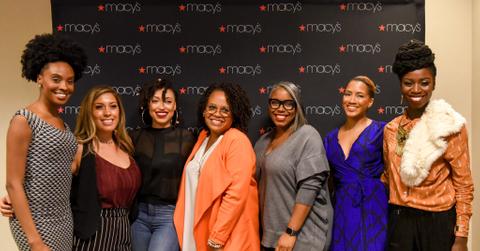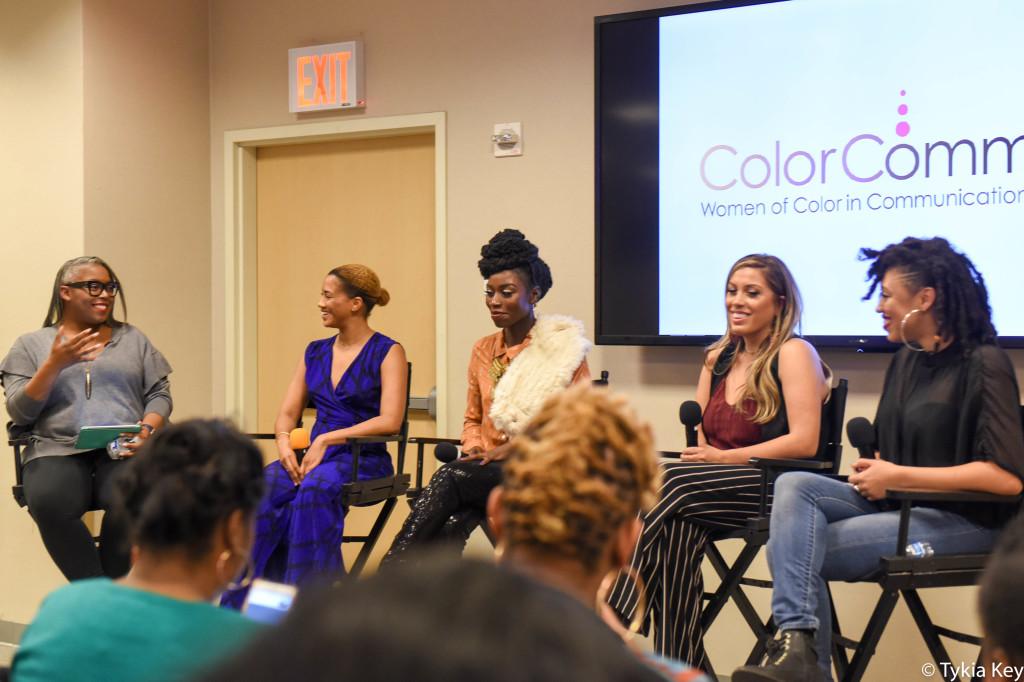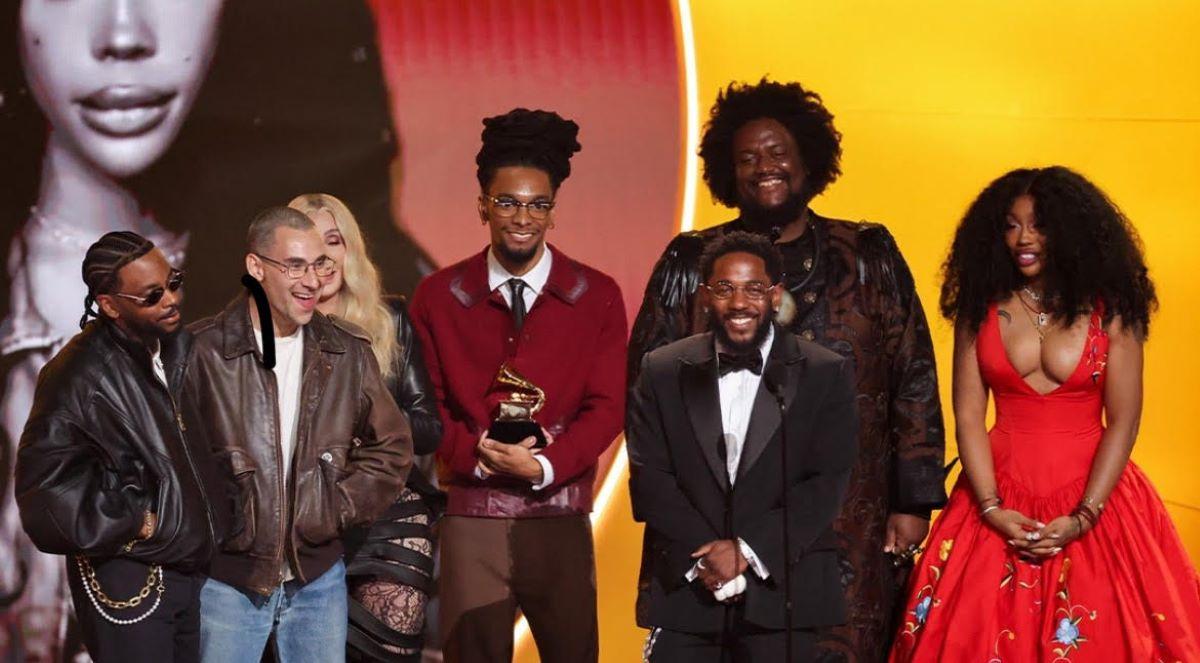Women Of Color Share Their Battles With Beauty And Self Love

Beauty bloggers and makeup gurus gathered for an an evening of glam and conversation about the trials and triumphs for women of color in the beauty industry. The event, held by ColorComm NYC in partnership with Macy’s and Bobbi Brown, featured Lisa Price, Ty Alexander, Taren Guy, Kristin Brown, Stephanie Brown, Stephanie Flor, and Demi Grace.
Lisa Price, founder of Carol’s Daughter began her business making products in her kitchen, selling out of neighborhood flea markets and fairs. “My husband delivered products on his roller blades. In the early days we sold on the street and we took our products out in shopping carts. I didn’t have a family with money – this is blood sweat and tears.” The company gained attention from high profile beauty brands, and Lisa was able to seal a deal with L’Oreal.
Yet Lisa Price faced backlash from women of color for the celebrity models she chose to represent the brand. Some argued she perpetuated colorism and only chose light skinned celebrities like Jada Pinkett, Cassie, Solange, and Selita Banks.
“That’s not really what happened. We picked people that we could afford and that were eager to work with us for less than what they would normally charge because they loved the brand,” Price said. “It’s always been (about) picking the unconventional person, and not based off of what the look like, but who they are.”
Unfortunately for Lisa, that was just the beginning of negative feedback. “There was one particular that I don’t think I’ll ever forget where someone said ‘what is it that you think youre teaching your children by teaching them to sell out.’” Naturally, the comment upset her. “I had to breathe, and I did write back to that person because I needed to set them straight,” she said. Yet knowing how hard she worked for it trumped the negativity. “I love that I’m able to influence other things that are happening. There are people who are willing to listen to me.”

Model and recording artist Demi Grace also faced backlash from the Black community, but for her Pantene commercial feature. Some onlookers argued that she was helping to promote mainstream beauty lines that overpowered smaller Black owned beauty companies.
“The point of the commercial wasn’t to take away from the Black dollar, it was supposed to be a ‘hey we see you.’” Demi was encouraged to come to the commercial shoot with her natural look as is, which let her know she was making the right decision.
While some women shared their empowerment to stand in their looks, others shared their struggle appreciating themselves.
has worked her MUA magic on top celebrities like Mariah Carey and Eve, but still had not tapped into her own beauty. “I just really wasn’t comfortable with my own beauty,” said Flor.
She traveled back to her family’s country to learn about her heritage and what made her unique. “For me that was the beginning of my journey, uncovering the beauty that I am presently and ancestrally.” Now, she promotes beauty that shines from the inside out.
Taren Guy shared that she, like many women, struggled with keeping up with Instagram and the high standard of beauty it places on women. Yet one day she realized that true beauty lies within. “Beauty is always there,” Guy shared. “Its not something that’s tangible, its something that you just have to have the ability to see.”
The panel also spoke to appropriation in the beauty and fashion industry. “I would like it if companies are going to use our influence, at least have us there to speak about where it came from. At least tap into the culture completely,” said Kristin Brown, founder of Gold Label Cosmetics.
Essence Gant, beauty editor at Buzzfeed shared that finding her voice and standing up for underrepresented women of color in beauty news was challenging for her as well. “I feel like when I first started in beauty I was a lot younger and I don’t know if I had the confidence to tell my supervisors, ‘we keep writing about the same people and writing about the same girls,’” Gant said.
“You just have a certain confidence and my conviction is just a little stronger. There’s certain things I wouldn’t stand for and my happiness means a lot to me now more than it did.”





